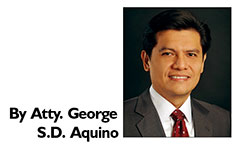 The perception that litigation is a slow and arduous process has drawn many of us closer to the idea of alternative modes of dispute resolution. This has been the trend, not only in the Philippines but worldwide, and it is laudable. Arbitration, in its various iterations (by panel; sole arbitrator; ad hoc arbitration) is the most common term we encounter.Motivated by the same goal are the efforts by the Supreme Court to adjust litigation practice by shortening proceedings. Recently, the Supreme Court introduced the Judicial Affidavit Rule which essentially now says that parties need not testify orally in open court, and they must simply submit their written statements ahead of the actual hearing date. The goal of this innovation, quite obviously, is to limit the time needed for the courts to hear cases. Aside from this, there is a study being made towards a broader and more far-reaching amendment of the Rules of Civil Procedure, again to shorten proceedings. These innovations, however, may be but a duplication of procedures which are already established in our Rules of Court. Discovery is an integral part of the litigation process in other jurisdictions. Unfortunately, in the Philippines, this is a gravely underutilised, perhaps even misunderstood, tool. Our Rules of Court already provide for modes of discovery. Availing of modes of discovery can be a potent tool to advance a client’s cause and to expose the frivolity of the opposing party’s claims. For instance, under Rule 23 of the Rules of Court, a party may seek the deposition of any person, whether a party to the case or not, once the case is filed. Thus, once a case is filed, the parties do not need to wait for trial before eliciting testimony from an intended witness. This is one step better than the judicial affidavits that are required today, as a litigant can have all the intended testimonies prepared even before pre-trial. In fact, even before a case is filed, if one considers it necessary to make of record his own testimony or secure the testimony of a witness, he can be proactive and preserve/perpetuate testimony by deposition before action (or pending appeal) governed by Rule 24. He can simply file a petition in a court of the residence of the expected adverse party, and his testimony may already be recorded. During the trial itself, a litigant may send a set of written questions (interrogatories) or written Request for Admission to the other party even before hearings are actually conducted. Aside from testimony, the parties can also secure material evidence by a request for production and inspection of things (Rule 27), or by requesting for a party to submit to a physical or mental examination (Rule 28). These rules, if used properly, will greatly aid in the litigation process. In theory, a party’s evidence should all be prepared even before a single trial date. The court’s intervention will be necessary only to go through the depositions already taken and evidence gathered, taking into consideration Rules of Admissibility and Evidentiary Exclusions. No longer is one restricted by distance, for instance, as he can secure the deposition of a witness who may be based abroad. This will eliminate delays and the cost of arranging for the witness to be transported and to appear before court. With the production of documents, parties can be fully apprised of potentially voluminous evidence that will tax the court’s time if examined in open court. The request for admission and interrogatories cuts through only the contested points, and trial can be confined to those matters. Utilisation of modes of discovery will clearly expedite the usual litigation process. These rules have been in the statute books for decades, and no amendment is actually necessary to expedite proceedings further. The only change necessary is in the way litigators think about and approach cases. Courts can also play an important role by reminding, or even compelling, resort to discovery, depending on the peculiarities of the case. Cutting through the usual sources of delay is great step in that direction. Atty. George Aquino is a Partner at the Litigation and Dispute Resolution Department of the Angara Abello Concepcion Regala & Cruz Law Offices and a Lecturer at the Ateneo de Manila School of Law. ––––––––––––– |
Make our system work: litigation practice expedited
41

